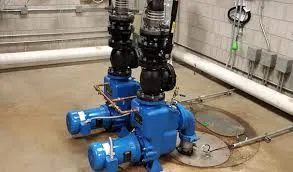Khmer
- Afrikaans
- Albanian
- Amharic
- Arabic
- Armenian
- Azerbaijani
- Basque
- Belarusian
- Bengali
- Bosnian
- Bulgarian
- Catalan
- Cebuano
- Corsican
- Croatian
- Czech
- Danish
- Dutch
- English
- Esperanto
- Estonian
- Finnish
- French
- Frisian
- Galician
- Georgian
- German
- Greek
- Gujarati
- Haitian Creole
- hausa
- hawaiian
- Hebrew
- Hindi
- Miao
- Hungarian
- Icelandic
- igbo
- Indonesian
- irish
- Italian
- Japanese
- Javanese
- Kannada
- kazakh
- Khmer
- Rwandese
- Korean
- Kurdish
- Kyrgyz
- Lao
- Latin
- Latvian
- Lithuanian
- Luxembourgish
- Macedonian
- Malgashi
- Malay
- Malayalam
- Maltese
- Maori
- Marathi
- Mongolian
- Myanmar
- Nepali
- Norwegian
- Norwegian
- Occitan
- Pashto
- Persian
- Polish
- Portuguese
- Punjabi
- Romanian
- Russian
- Samoan
- Scottish Gaelic
- Serbian
- Sesotho
- Shona
- Sindhi
- Sinhala
- Slovak
- Slovenian
- Somali
- Spanish
- Sundanese
- Swahili
- Swedish
- Tagalog
- Tajik
- Tamil
- Tatar
- Telugu
- Thai
- Turkish
- Turkmen
- Ukrainian
- Urdu
- Uighur
- Uzbek
- Vietnamese
- Welsh
- Bantu
- Yiddish
- Yoruba
- Zulu
Telephone: +86 13120555503
Email: frank@cypump.com
ធ្នូ . 04, 2024 05:47 Back to list
high pressure pump for detergent slurry manufacturers
High Pressure Pumps for Detergent Slurry Manufacturers
In the realm of industrial manufacturing, the quality and efficiency of the production process play a crucial role in determining the success of any company, particularly in the detergent industry. One of the key components that significantly influences these factors is the high pressure pump used for transporting and handling detergent slurry. This article delves into the importance of high pressure pumps in detergent slurry manufacturing, the benefits they offer, and considerations for manufacturers when selecting the right pump.
Understanding Detergent Slurry
Detergent slurry is a viscous mixture made from various ingredients, including surfactants, builders, and other chemicals that are essential for producing cleaning products. The manufacturing process involves mixing these ingredients in a precise ratio to ensure consistent product quality. High pressure pumps are essential in this context as they facilitate the efficient movement of the thick slurry through different stages of production.
Importance of High Pressure Pumps
High pressure pumps are designed to handle the challenges posed by the viscous nature of detergent slurry. Unlike conventional pumps, high pressure pumps can generate a considerable amount of pressure capable of overcoming the resistance created by thick materials. This is particularly vital in detergent manufacturing, where the ability to move the slurry quickly and efficiently from one processing stage to another can significantly impact production timelines and operational costs.
Moreover, these pumps ensure that the slurry maintains its homogeneity during transportation. Any disruptions in the mix can lead to inconsistencies in the final product, which can negatively affect customer satisfaction and brand reputation. Therefore, investing in a reliable high pressure pump is paramount for manufacturers aiming to produce high-quality detergents.
Benefits of High Pressure Pumps
1. Efficiency High pressure pumps operate with a high flow rate and pressure, reducing the time required to move materials. This translates to shorter production cycles and increased output.
2. Durability Built to withstand harsh working environments, high pressure pumps often feature robust materials resistant to corrosion and wear. This durability ensures a longer lifespan and reduces maintenance costs.
high pressure pump for detergent slurry manufacturers

3. Versatility Many high pressure pumps can handle a range of slurry compositions and viscosities, allowing manufacturers to adjust their production lines without the need for extensive equipment changes.
4. Cost-Effectiveness Although the initial investment in high pressure pumps may be significant, the long-term savings associated with reduced operational downtime, lower maintenance, and increased production efficiency can far outweigh these costs.
Choosing the Right High Pressure Pump
When selecting a high pressure pump for detergent slurry manufacturing, manufacturers should consider several critical factors
- Pump Type Various types of high pressure pumps exist, including piston pumps, diaphragm pumps, and rotor pumps. Understanding the specific needs of the detergent being produced will help in selecting the appropriate type. - Pressure and Flow Rate Requirements Assessing the viscosity and specific flow rates required for the slurry will aid in determining the pump's specifications.
- Material Compatibility The pump materials must be compatible with the chemicals used in the detergent slurry to avoid degradation.
- Service and Maintenance Opt for manufacturers that offer comprehensive service and support to ensure longevity and optimal performance of the pump.
Conclusion
In the competitive landscape of detergent production, the significance of high pressure pumps cannot be overstated. They serve as vital instruments that enhance efficiency, maintain product quality, and optimize manufacturing processes. For detergent slurry manufacturers, investing in the right high pressure pump is not just a matter of operational necessity but also a strategic move towards achieving higher profitability and customer satisfaction in an ever-evolving market.
-
High-Performance Air Pumps for Sand & Gravel | Efficient Transport
NewsAug.03,2025
-
ISG Series Vertical Pipeline Pump - Chi Yuan Pumps Co., LTD.|Energy Efficiency, Corrosion Resistance
NewsAug.03,2025
-
ISG Series Pipeline Pump - Chi Yuan Pumps | Energy Efficiency&Compact Design
NewsAug.03,2025
-
ISG Series Vertical Pipeline Pump - Chi Yuan Pumps Co., LTD.|High Efficiency, Low Noise, Durable
NewsAug.02,2025
-
ISG Series Vertical Pipeline Pump - Chi Yuan Pumps | High Efficiency, Low Noise
NewsAug.02,2025
-
ISG Series Vertical Pipeline Pump- Chi Yuan Pumps Co., LTD.|High Efficiency&Compact Design
NewsAug.02,2025










